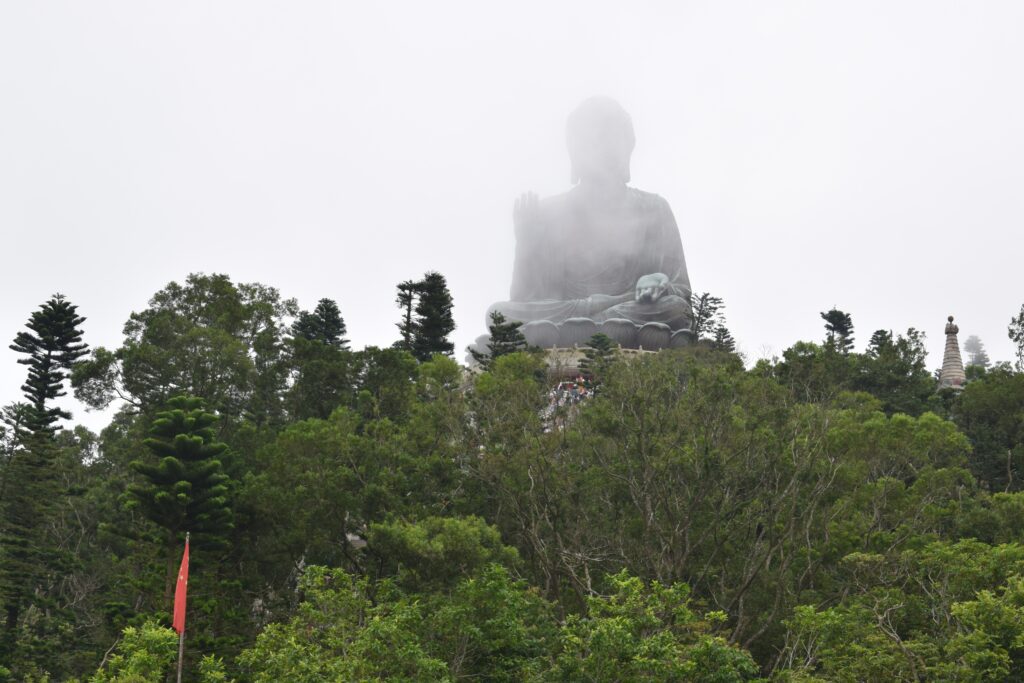re·li·gion
noun: the belief in a god or in a group of gods
: an organized system of beliefs, ceremonies, and rules used to worship a god or a group of gods
: an interest, a belief, or an activity that is very important to a person or group
Buddhism is non-theistic, which is to say that there is no god or pantheon of gods directly associated with Buddhism. However, if you do a Google search on “Buddhist deities” you’ll get plenty of evidence with which to argue against that statement. To understand this seeming contradiction, we need to look back on the early days of Buddhism.
The oldest form of Buddhism is Theravada, “the tradition of the elders.” These teachings are compiled in what is known as the Pali Canon (Pali is the language in which they were recorded). In these writings, the topic of a creator-god is addressed on several occasions and it is completely rejected as an untenable concept and a destructive view.
2,500 years ago, polytheism – the belief in many gods – was much more prevalent, as was animism (the belief that nature is full of the spirits of life). That there were many “worlds” (or planes of existence) was also a fairly common view, and it was amid this environment that Buddhism took shape. The gods, spirits, and ancestors that filled the world of the peoples of old were a part of their culture and they were not in conflict with Buddhism; Buddhism was able to live with these indigenous deities and in many cases become somewhat intertwined.
The Buddha taught that while there might be spirits and gods and planes of existence, they were all subject to the same rules. Jupiter or Aphrodite or Kali or Isis might well exist in some form, but if they do, they too are subject to constant change, to death and rebirth, and to being potentially wrong in their views. In other words, if the teachings of Buddhism are true, then they apply to any living being within our universe.
Theravada is the oldest form of Buddhism, but it isn’t the only one. Mahayana and Vajrayana feature deities as well, with the latter employing them as archetypal meditation objects, similar to the way that one might evoke/invoke deities in Western Ceremonial Magical traditions.
It’s easy to see, then, how the question of whether or not Buddhism is a religion doesn’t have a cut-and-dried answer. As Buddhism grew and spread, living amicably with indigenous gods, those gods became a part of evolved versions of Buddhism and Buddhism began to look more “religious”. When stripped of the trappings of other cultures, however, Buddhism mostly doesn’t care about gods one way or the other as long as they don’t divert us from the path.


Hi Kenn, I enjoyed reading your article, there appears to be a lot of debate on the net regarding this subject. I usually don’t get involved in it, to me it’s pointless. A bit like arguing whether its a sandal or a shoe. It’s only recently that I have come the conclusion that I’m a Buddhist, even though I have been practicing it for the last 40 odd years. I never read anything about Buddhism until recently. I came to this conclusion through logic and reasoning. Religions don’t make any sense to me, it’s founded on superstition and people fear of death, you may as well believe in ghost, poltergeist and leprechauns. I haven’t come hear to bash religion or the people that practice it, each to their own and long as they leave me to my own. I don’t believe in rebirth or reincarnation, a bit too far out for me and in the end after death you have little say in it, it’s what I do in this life that matters. The middle way is not easy or better described “The Razors Edge”, I have fallen off many times but as I get older and fall has turned into a lurch. Buddhism is not set in stone, its what I call a living philosophy, it is subject to change and it’s up to the individual to accept, reject or modify the teachings.